Can I Drink Coffee After Tooth Extraction? Everything You Need to Know for a Safe Recovery
Coffee lovers, we get it - your morning cup isn’t just a beverage, it’s a ritual.
But if you’ve recently had a tooth extraction, you’re probably wondering: Can I drink coffee after tooth extraction? And if so, when and how?
At Bazan Coffee, we believe great coffee goes hand-in-hand with well-informed choices, especially when your health and healing are at stake.
Why You Need to Be Cautious After Tooth Extraction
A tooth extraction is a minor surgical procedure, and like any surgery, it requires careful healing.
Immediately after an extraction, your body forms a blood clot over the wound to protect the bone and nerve endings beneath. Disrupting this clot can cause:
-
Dry socket (extremely painful, delayed healing)
-
Infection
-
Prolonged bleeding
That’s why dentists provide clear post-operative guidelines - including restrictions around eating and drinking.

Can I Drink Coffee After Tooth Extraction? Quick Answer: Not Immediately
No, you should not drink coffee immediately after a tooth extraction.
According to the American Dental Association (ADA) and dental care literature:
"Hot beverages, including coffee, should be avoided for at least 24-48 hours post-extraction to prevent clot dislodgement and promote healing."
Here's why:
-
Heat from hot coffee can dissolve or dislodge the blood clot.
-
Caffeine may increase blood pressure, contributing to bleeding.
-
Suction action (from sipping) can disturb healing tissues.
Why Coffee Can Be Problematic After Extraction
1. Heat Risks
High temperatures:
-
Cause blood vessels to dilate
-
Increase the risk of bleeding
-
Slow down clot formation
SCA’s 2023 Beverage Temperature Study highlights:
"Hot liquids (above 60°C / 140°F) can impair soft tissue healing post oral surgeries."
2. Caffeine’s Physiological Effects
Caffeine can:
-
Elevate blood pressure
-
Delay clot stabilization
-
Trigger mild dehydration (affecting oral tissue recovery)
While a moderate amount of caffeine is unlikely to be harmful once healing is underway, it’s better to avoid it immediately post-surgery.
3. Suction Action and Dry Socket
Drinking through a straw or aggressively sipping:
-
Creates negative pressure
-
Can dislodge the blood clot
-
Leads to dry socket, a painful condition requiring additional dental care
Important: Even if you drink coffee cooled down, avoid using a straw in the first few days.

When Can You Safely Drink Coffee After Tooth Extraction?
|
Healing Phase |
Coffee Guidelines |
Bazan Tip |
|
First 24-48 hours |
Avoid coffee completely |
Focus on hydration with plain water |
|
After 48 hours (if healing well) |
Introduce cool or lukewarm coffee, no straws |
Sip gently, small amounts |
|
After 5-7 days |
Return to warm coffee carefully |
Choose low-acid brews like Cau Dat Arabica |
|
After full healing (1-2 weeks) |
Normal coffee routines can resume |
Enjoy bold brews like Special Vietnam Blend |
Barista Hustle’s 2022 Post-Procedure Coffee Guide recommends:
"Allowing 48-72 hours post-extraction before resuming mild coffee intake minimizes risks of delayed healing."
How to Reintroduce Coffee Safely After Extraction
1. Choose Lukewarm or Cold Brew
-
Skip piping hot brews.
-
Cold brew or room-temperature pour-overs are ideal.
-
Bazan’s Cau Dat Arabica cold brew offers smooth, low-acid comfort perfect for sensitive healing mouths.
2. Avoid Sugary Additives
Sugars can:
-
Feed harmful oral bacteria
-
Increase risk of infection around the wound
Stick to pure black coffee or lightly sweetened options.
3. Sip, Don’t Slurp
Avoid strong suction actions:
-
Sip gently
-
Avoid swishing liquids aggressively
4. Monitor Your Mouth
If you notice:
-
New bleeding
-
Sharp pain
-
Increased swelling
Stop coffee consumption and consult your dentist immediately.

FAQs: Coffee and Tooth Extraction - Your Common Questions Answered
How long exactly should I wait before drinking coffee?
-
Ideally at least 48 hours.
-
If swelling and bleeding have significantly reduced, you may cautiously reintroduce lukewarm coffee.
What about decaf coffee?
Decaf still contains heat and acidity if served hot.
Thus, decaf should follow the same timing rules as regular coffee: wait 48 hours minimum.
Can I add milk to coffee after tooth extraction?
Yes - if your wound is healing well.
However, high-sugar creamers are best avoided initially to reduce bacterial growth risk.
Is iced coffee a safer option?
Absolutely!
-
Cold brew or iced coffee (without a straw) is a gentler reintroduction option.
-
Bazan’s cold brew recipes are ideal for post-extraction recovery.
Why Bazan Coffee Is Ideal for Post-Extraction Recovery
At Bazan Coffee, we craft each batch to:
-
Offer low-acid, smooth profiles gentle on healing tissue
-
Maintain clean, specialty-grade purity without chemical residues
-
Deliver rich flavors even at cooler brewing temperatures (perfect for lukewarm sipping)
Whether you’re easing back into coffee with a Cau Dat Arabica cold brew or celebrating recovery with a Special Vietnam Blend pour-over, Bazan ensures your experience is both delicious and body-friendly.
Can I Drink Coffee After Tooth Extraction? Yes - But Timing and Care Matter
So, can I drink coffee after tooth extraction?
Not right away.
To support safe and comfortable healing:
-
Avoid coffee for the first 24-48 hours.
-
Introduce cool or lukewarm black coffee carefully after 48 hours.
-
Avoid straws, hot temperatures, and sugary additives.
With patience and smart choices, you’ll be back to enjoying your favorite Bazan brew safely - and even more gratefully!
Brew Gently. Sip Safely. Heal Better with Bazan Coffee.
Explore Bazan’s recovery-friendly brews:
-
Cau Dat Arabica - Low-acid, smooth, perfect for sensitive mouths.
-
Special Vietnam Blend - Rich, balanced energy to celebrate your healing.
-
Fine Robusta - Krong Năng - Boldness for your comeback mornings!
Trust your brew. Respect your healing. Choose Bazan Coffee.




